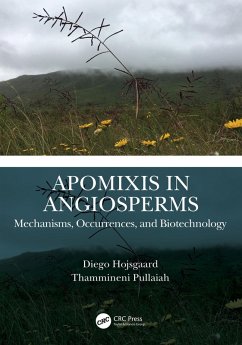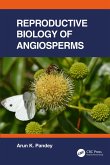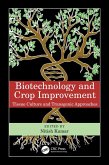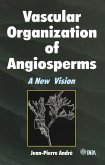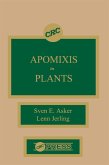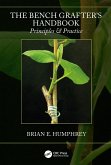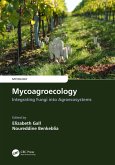Diego Hojsgaard, Thammineni Pullaiah
Apomixis in Angiosperms (eBook, ePUB)
Mechanisms, Occurrences, and Biotechnology
51,95 €
51,95 €
inkl. MwSt.
Sofort per Download lieferbar

26 °P sammeln
51,95 €
Als Download kaufen

51,95 €
inkl. MwSt.
Sofort per Download lieferbar

26 °P sammeln
Jetzt verschenken
Alle Infos zum eBook verschenken
51,95 €
inkl. MwSt.
Sofort per Download lieferbar
Alle Infos zum eBook verschenken

26 °P sammeln
Diego Hojsgaard, Thammineni Pullaiah
Apomixis in Angiosperms (eBook, ePUB)
Mechanisms, Occurrences, and Biotechnology
- Format: ePub
- Merkliste
- Auf die Merkliste
- Bewerten Bewerten
- Teilen
- Produkt teilen
- Produkterinnerung
- Produkterinnerung

Bitte loggen Sie sich zunächst in Ihr Kundenkonto ein oder registrieren Sie sich bei
bücher.de, um das eBook-Abo tolino select nutzen zu können.
Hier können Sie sich einloggen
Hier können Sie sich einloggen
Sie sind bereits eingeloggt. Klicken Sie auf 2. tolino select Abo, um fortzufahren.

Bitte loggen Sie sich zunächst in Ihr Kundenkonto ein oder registrieren Sie sich bei bücher.de, um das eBook-Abo tolino select nutzen zu können.
An outline of the molecular basis of apomixis in plants is presented, together with prospects and challenges that remain for its biotechnological exploitation.
- Geräte: eReader
- ohne Kopierschutz
- eBook Hilfe
- Größe: 9.71MB
Andere Kunden interessierten sich auch für
![Reproductive Biology of Angiosperms (eBook, ePUB) Reproductive Biology of Angiosperms (eBook, ePUB)]() Arun K. PandeyReproductive Biology of Angiosperms (eBook, ePUB)78,95 €
Arun K. PandeyReproductive Biology of Angiosperms (eBook, ePUB)78,95 €![Biotechnology and Crop Improvement (eBook, ePUB) Biotechnology and Crop Improvement (eBook, ePUB)]() Biotechnology and Crop Improvement (eBook, ePUB)51,95 €
Biotechnology and Crop Improvement (eBook, ePUB)51,95 €![Vascular Organization of Angiosperms (eBook, ePUB) Vascular Organization of Angiosperms (eBook, ePUB)]() Jean-Pierre AndreVascular Organization of Angiosperms (eBook, ePUB)44,95 €
Jean-Pierre AndreVascular Organization of Angiosperms (eBook, ePUB)44,95 €![Apomixis in Plants (eBook, ePUB) Apomixis in Plants (eBook, ePUB)]() Sven AskerApomixis in Plants (eBook, ePUB)264,95 €
Sven AskerApomixis in Plants (eBook, ePUB)264,95 €![The Bench Grafter's Handbook (eBook, ePUB) The Bench Grafter's Handbook (eBook, ePUB)]() Brian E. HumphreyThe Bench Grafter's Handbook (eBook, ePUB)81,95 €
Brian E. HumphreyThe Bench Grafter's Handbook (eBook, ePUB)81,95 €![Developing Climate-Resilient Crops (eBook, ePUB) Developing Climate-Resilient Crops (eBook, ePUB)]() Developing Climate-Resilient Crops (eBook, ePUB)51,95 €
Developing Climate-Resilient Crops (eBook, ePUB)51,95 €![Mycoagroecology (eBook, ePUB) Mycoagroecology (eBook, ePUB)]() Mycoagroecology (eBook, ePUB)63,95 €
Mycoagroecology (eBook, ePUB)63,95 €-
-
-
An outline of the molecular basis of apomixis in plants is presented, together with prospects and challenges that remain for its biotechnological exploitation.
Dieser Download kann aus rechtlichen Gründen nur mit Rechnungsadresse in A, B, BG, CY, CZ, D, DK, EW, E, FIN, F, GR, HR, H, IRL, I, LT, L, LR, M, NL, PL, P, R, S, SLO, SK ausgeliefert werden.
Produktdetails
- Produktdetails
- Verlag: Taylor & Francis
- Seitenzahl: 274
- Erscheinungstermin: 19. August 2022
- Englisch
- ISBN-13: 9781000624014
- Artikelnr.: 64259046
- Verlag: Taylor & Francis
- Seitenzahl: 274
- Erscheinungstermin: 19. August 2022
- Englisch
- ISBN-13: 9781000624014
- Artikelnr.: 64259046
Diego Hojsgaard obtained his Ph.D. (2010) in Natural Resources (Botany) from the National University of the Northeast, Argentina. He was a Post-doctoral Fellow at Vienna University, Austria, during 2010-2011, before joining The University of Göttingen as a non-tenured Assistant Professor in 2012. Since 2016 he has acted as Visiting Professor at the National University of Misiones in Argentina. He travelled extensively in Europe and South America, the United States, England and China and visited Universities and Botanic Gardens in about 16 countries. He is currently a Guest Scientist in the Taxonomy and Evolutionary Biology group at the Leibniz Institute of Plant Genetics and Crop Plant Research in Germany. Diego does research in Plant Evolutionary Biology and Genetics, focusing on understanding how species use different mechanisms to maximize the exploitation of genetic variability during adaptation and speciation. His projects address topics in plant reproductive biology with an emphasis on apomixis, including ovule ontogeny and the origin of different types of female gametophytes, plant cytotype interactions (population dynamics) and natural distributions, extant genetic variability and the ecology of adaptation. He has published 40 research articles, 3 book chapters and edited one book.
Dr. T. Pullaiah is a former Professor at the Department of Botany at Sri Krishnadevaraya University in Andhra Pradesh, India, where he has taught for more than 35 years. He has held several positions at the university, including Dean, Faculty of Biosciences, Head of the Department of Botany, Head of the Department of Biotechnology, and Member of Academic Senate. He was President of Indian Botanical Society (2014), President of the Indian Association for Angiosperm Taxonomy (2013) and Fellow of Andhra Pradesh Akademi of Sciences. He was awarded the Panchanan Maheshwari Gold Medal, the Prof. P.C.Trivedi Medal, the Dr. G. Panigrahi Memorial Lecture award of the Indian Botanical Society and Prof. Y.D. Tyagi Gold Medal of the Indian Association for Angiosperm Taxonomy, and a Best Teacher Award from Government of Andhra Pradesh. Under his guidance 54 students obtained their doctoral degrees. He has authored 52 books, edited 23 books, and published over 330 research papers, including reviews and book chapters. His books include Advances in Cell and Molecular Diagnostics (published by Elsevier), Camptothecin and Camptothecin producing Plants (Elsevier) Ethnobotany of India (5 volumes published by Apple Academic Press), Global Biodiversity (4 volumes, Apple Academic Press), Red Sanders: Silviculture and Conservation (Springer), Genetically Modified Crops (2 volumes, Springer), Monograph on Brachystelma and Ceropegia in India (CRC Press), etcs. He was also a member of Species Survival Commission of the International Union for Conservation of Nature (IUCN). Professor Pullaiah received his PhD from Andhra University, India, attended Moscow State University, Russia, and worked as Post-Doctoral Fellow during 1976-1978.
Dr. T. Pullaiah is a former Professor at the Department of Botany at Sri Krishnadevaraya University in Andhra Pradesh, India, where he has taught for more than 35 years. He has held several positions at the university, including Dean, Faculty of Biosciences, Head of the Department of Botany, Head of the Department of Biotechnology, and Member of Academic Senate. He was President of Indian Botanical Society (2014), President of the Indian Association for Angiosperm Taxonomy (2013) and Fellow of Andhra Pradesh Akademi of Sciences. He was awarded the Panchanan Maheshwari Gold Medal, the Prof. P.C.Trivedi Medal, the Dr. G. Panigrahi Memorial Lecture award of the Indian Botanical Society and Prof. Y.D. Tyagi Gold Medal of the Indian Association for Angiosperm Taxonomy, and a Best Teacher Award from Government of Andhra Pradesh. Under his guidance 54 students obtained their doctoral degrees. He has authored 52 books, edited 23 books, and published over 330 research papers, including reviews and book chapters. His books include Advances in Cell and Molecular Diagnostics (published by Elsevier), Camptothecin and Camptothecin producing Plants (Elsevier) Ethnobotany of India (5 volumes published by Apple Academic Press), Global Biodiversity (4 volumes, Apple Academic Press), Red Sanders: Silviculture and Conservation (Springer), Genetically Modified Crops (2 volumes, Springer), Monograph on Brachystelma and Ceropegia in India (CRC Press), etcs. He was also a member of Species Survival Commission of the International Union for Conservation of Nature (IUCN). Professor Pullaiah received his PhD from Andhra University, India, attended Moscow State University, Russia, and worked as Post-Doctoral Fellow during 1976-1978.
Chapter 1. Introduction
Chapter 2. Sexual Development and Pathways to Apomixis
Chapter 3. Identifying Apomixis in Nature
Chapter 4. Apomictic Grasses
Chapter 5. Apomictic Daisies
Chapter 6. Apomictic Roses
Chapter 7. Apomixis in Other Families of Angiosperms
Chapter 8. Apomixis in Angiosperms
Chapter 9. Molecular Basis of Apomixis and Applications
Glossary
Chapter 2. Sexual Development and Pathways to Apomixis
Chapter 3. Identifying Apomixis in Nature
Chapter 4. Apomictic Grasses
Chapter 5. Apomictic Daisies
Chapter 6. Apomictic Roses
Chapter 7. Apomixis in Other Families of Angiosperms
Chapter 8. Apomixis in Angiosperms
Chapter 9. Molecular Basis of Apomixis and Applications
Glossary
Chapter 1. Introduction
Chapter 2. Sexual Development and Pathways to Apomixis
Chapter 3. Identifying Apomixis in Nature
Chapter 4. Apomictic Grasses
Chapter 5. Apomictic Daisies
Chapter 6. Apomictic Roses
Chapter 7. Apomixis in Other Families of Angiosperms
Chapter 8. Apomixis in Angiosperms
Chapter 9. Molecular Basis of Apomixis and Applications
Glossary
Chapter 2. Sexual Development and Pathways to Apomixis
Chapter 3. Identifying Apomixis in Nature
Chapter 4. Apomictic Grasses
Chapter 5. Apomictic Daisies
Chapter 6. Apomictic Roses
Chapter 7. Apomixis in Other Families of Angiosperms
Chapter 8. Apomixis in Angiosperms
Chapter 9. Molecular Basis of Apomixis and Applications
Glossary
